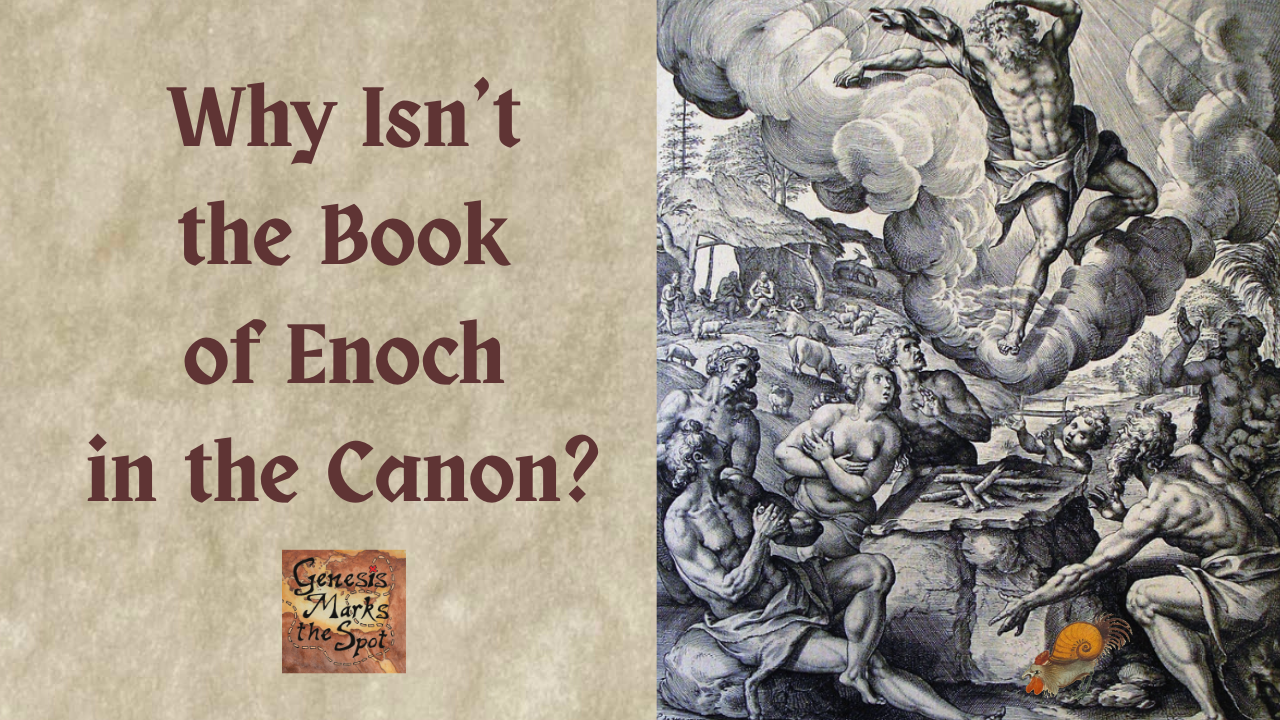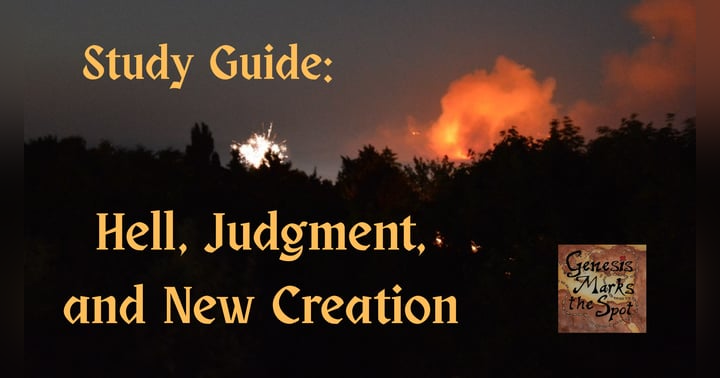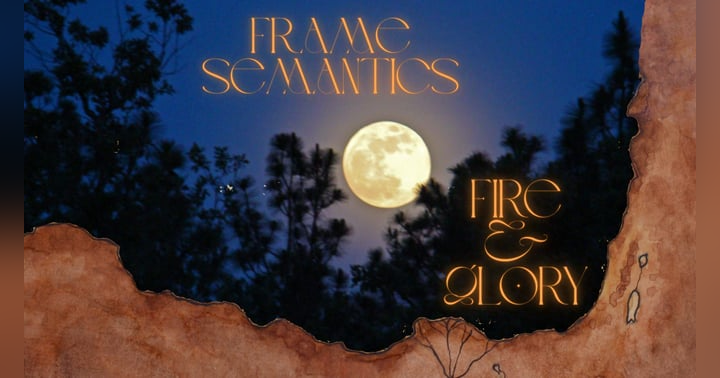Why 1 Enoch Is Not in the Canon of Scripture

So here's a common question from people who follow Dr. Michael Heiser's work, or really any of the current flurry of interest in 1 Enoch:
Why isn’t 1 Enoch in our Bibles?
I mean, after all...you've found out that it's quoted in the Bible and that the NT authors presuppose much of the material that we find in the book! I mean, helloooo, it tells us why demons were demons, it gives us Son of Man language (*ahem* we'll ignore that it's likely that Enoch is the Son of Man in the book...), and golly gee whiz it sounds super biblical and hey maybe Enoch did write it! How do we know that he didn't?! (We know because it fits perfectly into the time-specific genres of the second temple period and oh by the way, the "complete" version we have is not found "complete" in the DSS and it was likely compiled and further edited post-Jesus.)
Well, let’s walk through the history, the theology, and the canon debates that left 1 Enoch on the outside looking in, even as it cast a long shadow over early Jewish and Christian thought. (Though let's be honest, its grand impact really didn't last all that long, historically speaking.)
1. It Was Never in the Hebrew Scriptures
Let’s start at the source: 1 Enoch wasn’t part of the Jewish Scriptures—the Tanakh—and wasn’t even included in any version of the Greek Septuagint, which manuscript tradition many early Christians used as their Old Testament. When early church leaders started discerning which writings were “God-breathed,” they typically leaned on what was already affirmed in the Jewish tradition. Since 1 Enoch wasn’t in that foundational collection, it didn’t have the canonical credentials to begin with.
2. The Issue of Authorship
1 Enoch claims to be written by Enoch, the seventh from Adam (see Genesis 5:24). But no one—ancient or modern—seriously believes that. The book is pseudepigraphal, meaning it was written under someone else’s name, likely centuries after Enoch lived. This was a common genre of writing at the time, not truly meant to deceive. It was just a type of writing they did.
This is not a minor point, even if we could debate some authorship of some books in the canon today. It's not about whether we can prove authorship today; it's whether the early church understood who the writer was. One of the major criteria for canonicity was that the early could understood that a book originated from (or at least was directly connected to) a recognized prophet (Old Testament) or apostle (New Testament). A later writing attributed to an ancient figure just didn’t cut it—no matter how intriguing the content.
3. Theology That Doesn’t Align
Let’s also be honest, okay: 1 Enoch reads more like Revelation meets Lord of the Rings. It’s filled with fallen angels (the “Watchers”), Nephilim giants, cosmic calendars, and layers upon layers of apocalyptic imagery. It’s creative, but it doesn’t wholly align with the theological shape of either Jewish or Christian orthodoxy.
Early rabbis distanced themselves from it (and please, let's not arrogantly presume that was all because of Christianity), especially as they emphasized Torah-centered theology. And for the early Church, the book’s elaborate angelology and dualistic overtones raised serious doctrinal red flags.
4. It Had an Inconsistent Reception
Yes, it’s true: some early church fathers did quote from 1 Enoch. Writers like Tertullian, Clement of Alexandria, and Irenaeus seemed to appreciate it—a few even considered it inspired. But here’s the key: it was never universally accepted.
By the fourth century, when the canon truly began to solidify firmly, 1 Enoch had fallen out of favor. Councils like Laodicea (c. 363–64 AD) excluded it, and major figures like Athanasius, Origen, and Jerome dismissed it as apocryphal.
5. But What About Jude?
Great question. Jude 1:14–15 directly quotes 1 Enoch, even saying, “Enoch, the seventh from Adam, prophesied…” Doesn’t that prove it’s Scripture?!
Not necessarily.
Quoting from a source doesn’t mean you’re canonizing the whole work. Paul quotes pagan poets; Jesus uses common parables. And while 1 Enoch may preserve a true tradition that Jude found helpful, it doesn’t follow that the entire book was divinely inspired.
(Think of it like quoting The Princess Bride in a sermon. It's a brilliant move; more sermons should quote it. Talk about wisdom for the ages! But it doesn’t mean we’re canonizing Buttercup and Westley. ...Maybe Inigo, jury's still out on that one...)
6. It Survived in a Very Specific Tradition
Here’s a fascinating wrinkle: the only complete version of 1 Enoch that survived into the modern era was preserved in Geʽez, the ancient liturgical language of the Ethiopian Church. That’s because only the Ethiopian Orthodox Church includes 1 Enoch in its biblical canon.
Outside of that tradition, it was lost to most of the world (not in an ultra-secret-undercover way...simply because, as already described, it simply wasn't found to be useful for the church) until fragments were discovered among the Dead Sea Scrolls in the 20th century. Those discoveries confirmed its ancient Jewish roots—but didn’t change its canonical status in the broader Church.
So, Again, Why Isn’t It in the Canon??
Let me explain. No, there is too much. Let me sum up. 1 Enoch didn’t make the cut because:
-
It wasn’t part of the Jewish Scriptures.
-
It lacked prophetic authorship.
-
It didn’t align theologically with the rest of Scripture.
-
It was never widely accepted by the early Church.
-
And Jude’s quote, while fascinating, wasn’t enough to push it over the finish line.
Still, it remains a valuable piece of literature—especially for understanding the supernatural worldview of Second Temple Judaism and the apocalyptic imagination behind books like Daniel and Revelation. What it provides for us in places like the divine council worldview is that it helps us understand how they were thinking about things and reading Scripture (Genesis 6 in particular) and understanding evil and depravity in the world, etc.
Just because something was written about the supernatural world and some of that content is acknowledged, does not make something canonical Scripture. What the canon is, is revelation that is useful for the whole church. It contains the fullness of what we need to know about those things. Maybe that means there's writing out there that is true, even, but if it didn't make it into what we read as the full revelation of the text, then...it forms something useful, but not necessary.
Want to Learn More?
If this topic has piqued your interest (and how could it not?!), here are some solid resources to dig deeper:
Books & Academic Works
-
1 Enoch: A Commentary by George W. E. Nickelsburg
-
1 Enoch: A New Translation by Nickelsburg & VanderKam
-
The Lost Prophet by Margaret Barker
- A Companion to the Book of Enoch, A Reader's Commentary, Vol 1 by Michael Heiser
- A Companion to the Book of Enoch, A Reader's Commentary, Vol 2 by Michael Heiser
Church History & Canon Formation
-
The Old Testament Pseudepigrapha edited by James H. Charlesworth
-
Council of Laodicea’s canon list (c. 364 AD)
-
Works of Tertullian, Origen, and Athanasius on Scripture








